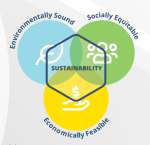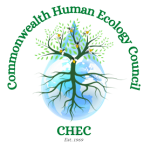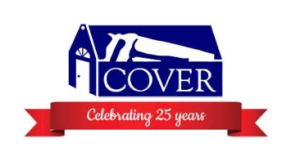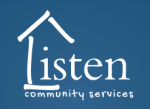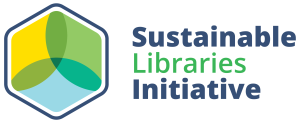
The American Library Association (ALA) adopted a strategic direction of sustainability at their 2019 Midwinter meeting and made a commitment to the Triple Bottom Line framework for sustainability. This tripod consists of practices that are environmentally sound, economically feasible and socially equitable. The ALA is supporting the library community by showing its commitment to assisting in the development of sustainable libraries with the addition of sustainability as a core value of librarianship.
Since January 2022, the Norman Williams Public Library has been working towards our Sustainable Library Certification. The process is designed to ensure the NWPL staff gains the tools and knowledge to establish sustainable practices within the library and demonstrate how acting sustainably can change the community for the better. This ground-breaking initiative guides libraries through a step by step process to infuse triple bottom line sustainable decision-making into the library’s policies and actions.
Some of the improvements we have made in this journey include:
— New building-wide more energy efficient HVAC system
— Conversion to LED lighting throughout the building
— Updated recycling bins and trash bins
— Battery and small electronics recycling station
— Commitment to chemical-free lawn care and chemical-free cleaning products
The Triple Bottom Line consists of practices that are environmentally sound, economically feasible, and socially equitable. Libraries play an important and unique role in promoting community awareness about resilience, climate change, and a sustainable future.
The NWPL Sustainability team is working through twelve categories that help align our efforts with the Triple Bottom Line:
Organizational Commitment; Energy; Materials Management – Waste/Recycling; Materials Management – Purchasing; Transportation; Land Use; Water; Collective Impact; Social Cohesion; Community Resilience; Financial Sustainability; Collections
NWPL Sustainability Policy
The Norman Williams Public Library (NWPL) is committed to promoting responsible environmental stewardship and to buying environmentally friendly products. Employee understanding and involvement are essential to the implementation of our sustainability policy. All employees will be educated about our organization’s efforts to improve our environmental performance. All employees will be involved in supporting our goals.
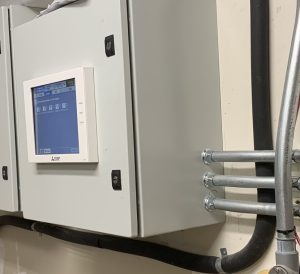
Energy management will be an integral part of the library’s sustainability efforts. Decisions regarding lighting, heating and cooling, and appliances will consider the most energy-efficient practices and options available.
The principles of reduce, reuse, and recycle will be incorporated into all aspects of the library’s operations. The library will use clearly labeled recycling bins and signs throughout the facility. Employees will be trained on proper waste disposal and recycling practices. The library will engage in green purchasing whenever possible as long as it is not a financial burden on the organization.
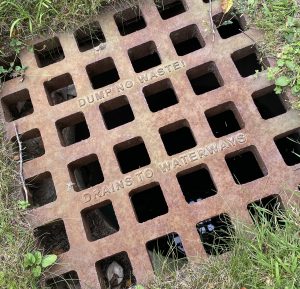
The library will conduct efficient and environmentally friendly land usage practices with a view to non-pollution and active ecological support and sustainable business operations. Our goal is to minimize our impact on the environment, ensure a sustainable future, and promote community resilience. NWPL staff are expected to engage in procedures and programs that strive to minimize pollution and waste, conserve energy and water, protect habitat, and support renewable energy resources.
Sustainable Purchasing Policy
The Norman Williams Public Library strives to be a responsible steward of its resources, including decreasing its impact on the environment. Toward that end, the Library will, wherever practicable, efficient and fiscally responsible, endeavor to use sustainable and environmentally sound procurement practices in purchasing supplies and equipment.
Anyone purchasing an item shall consider recyclability of the item, amount of post-consumer recycled content in the items and packaging, disposal of items such as batteries and hardware, transportation distances and impacts for delivery of the items and the ability for an item to be repaired or repurposed rather than re-purchasing.
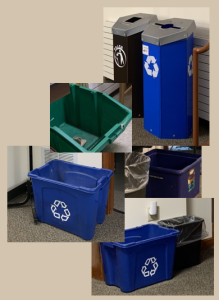
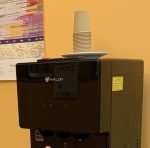
Battery Recycling
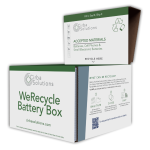 Norman Williams Public Library is pleased to offer a certified alternative for recycling batteries and small electronics: WeRecycle Battery Box (formerly The Big Green Box).
Norman Williams Public Library is pleased to offer a certified alternative for recycling batteries and small electronics: WeRecycle Battery Box (formerly The Big Green Box).
Perfect for alkaline batteries from your remote control or wireless mouse, rechargeable laptop and cell phone batteries, even your old power tool batteries. Bring them to the circulation desk, bag them, and drop them in.
Acceptable Materials: Alkaline, Zinc Carbon, Nickel Cadmium (NiCd), Nickel Metal Hydride (NiMH), Lithium-Ion, Lithium Primary, Mercury Batteries, Silver Oxide, Button Cells, Lead Acid – Non-Spillable, Small Electronics (cellphones, tablets, wireless headphones and earbuds, smart watches, activity trackers, power tools, etc.)
The Friends of Norman Williams Public Library have agreed to underwrite the cost of this recycling program!
Sustainability & Recycling Resources
 The Ten Towns • Ten Actions Toolkit is a menu of concrete actions, ready-made templates, and technical support started by ten volunteers — many of whom have already been successful in effecting change in their communities and all willing to help others rethink plastic. The goal of the Toolkit is to inspire and guide community leaders, catalysts, champions, and others in accomplishing actions toward plastic waste reduction and zero waste strategies, and also to track and celebrate the accomplishments publicly through regular, coordinated media announcements and events.
The Ten Towns • Ten Actions Toolkit is a menu of concrete actions, ready-made templates, and technical support started by ten volunteers — many of whom have already been successful in effecting change in their communities and all willing to help others rethink plastic. The goal of the Toolkit is to inspire and guide community leaders, catalysts, champions, and others in accomplishing actions toward plastic waste reduction and zero waste strategies, and also to track and celebrate the accomplishments publicly through regular, coordinated media announcements and events.
 Vital Communities engages Upper Valley people, organizations, and communities to create equitable solutions to our region’s challenges. Our staff specializes in convening for change: bringing people together to size up and address our challenges. We have evolved as a hub of initiatives, resources, and working groups in such areas as business vitality, food and farming, energy, transportation, climate change, leadership, housing, and outdoor learning.
Vital Communities engages Upper Valley people, organizations, and communities to create equitable solutions to our region’s challenges. Our staff specializes in convening for change: bringing people together to size up and address our challenges. We have evolved as a hub of initiatives, resources, and working groups in such areas as business vitality, food and farming, energy, transportation, climate change, leadership, housing, and outdoor learning.
Sustainability in Textiles
The fashion industry is one of the world’s largest polluters. From chemicals used in dyeing fabrics and in nitrogen-based fertilizers in the cotton fields to synthetic fibers (plastics) in landfills, greenhouse gasses, and human exploitation in factories, the fashion industry has a significant environmental impact. Luckily, there are ways we can help reduce this impact. Some companies are now working to lessen the environmental impact of the industry and we can support them. We can also make small changes to our habits and purchasing that can make a real difference. Resources relating to sustainability in the textile industry.


